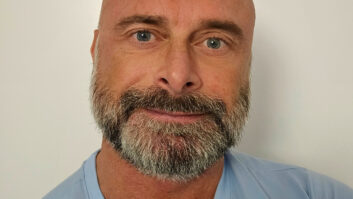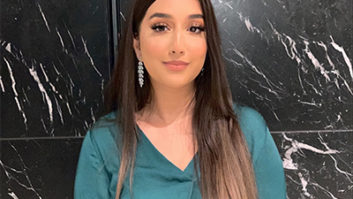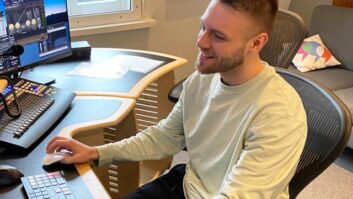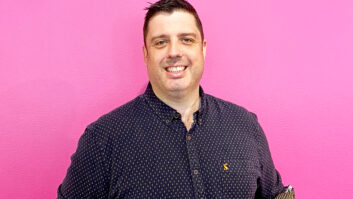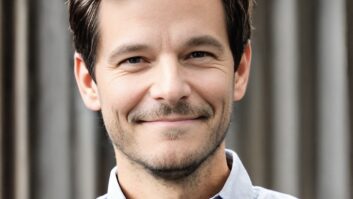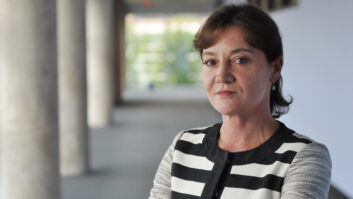Jordan Toner, customer fulfilment engineer, Pebble
Talk us through an average day in your role
After completing my morning routine (which includes yoga!) one of my first tasks is to check on support calls that have come through overnight, followed by a regular catch up with my line manager and colleagues on the work to be prioritised and completed for that day. The work varies from a simple configuration of adding another channel to an existing system or helping to build a playout infrastructure from scratch for a new broadcast facility.
I then respond to emails following up on questions from existing customers or requests from our solution architects team detailing future work that will come our way which needs to be planned for.
Some days I’m involved in a kick-off meeting which provides vital information on what is needed for a customer and the timeframe for delivery, others I’m solving the challenge of a complex configuration at a customer site – so looking at the type of channel they play out and the hardware they use to do this alongside our software and then identifying what changes/fixes need to be made to the hardware so that the channel continues to play out successfully. And then there are days where I’m working on a full technology refresh, which means installing new servers whilst ensuring the customers’ channel/s stay on air – which is quite the challenge. A tech refresh like this happens in one day!
As you can imagine, working on so many different projects concurrently means that every day is very different!
How did you get started in the media industry?
My first job was as a warehouse assistant for a live events company. I helped to design the live events in the warehouse itself, recreating the “event” locally; my main duties being to test all the kit which ranged from lighting, safety bonds, audio desks (testing faders) microphones, cabling, cameras and finally stress testing the truss.
My next role was working for BFBS as a junior broadcast engineer. I remember my first task was fixing an uplink van – which was quite old! From there, I was then given the task to update the facility’s Scala archive system, taking it from the older LTO4 to the newer LTO6 tape generation. I also had to install a whole new robot and chassis as well as a light web interface. At the time, BFBS were using Pebble’s Integrated Channel solution which is how I first heard about Pebble!
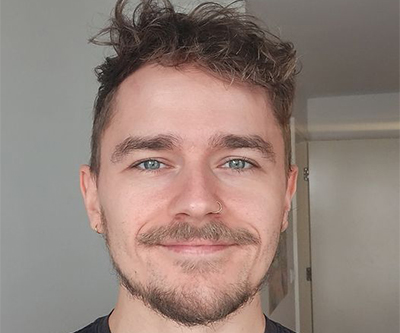
I also worked for a number of systems integrators to help design and build large-scale production facilities worldwide, the most memorable being for the BBC Lagos Bureau in Nigeria. I experienced a very different side of the world and met some very interesting people; friends I keep in touch with even now.
After some time with TSL, I then moved on to Blackmagic Design as a technical sales specialist for broadcast, where I built a mini production facility in a van and drove it across 12 countries in Europe in eight weeks!
After my time at Blackmagic, I worked on a project for Google Deep Mind to build the best video conferencing facility possible. The backbone of the facility was MTP trunked fibre, enabling a full UHD SMPTE 2110 system – it was all IP, with no SDI at all – across multiple sets of meeting rooms with AI controlled cameras, Shure directional microphones and speakers in the ceilings. This was also recreated in an amphitheatre for a video conferencing experience straight out of the year 3000!
What training did you have before entering the industry?
I took a two-year college course in Media Studies aged 16, but didn’t return back to education until I was 23. In between, I spent two years working as a 999 call taker for the Ambulance Service, but I eventually went on to study Media Technology at the University of Salford – a big shout out for Laurence Murphy who is the lead lecturer and head of technology there! He undoubtedly helped me land my first job.
Why do you enjoy working in the industry?
Because I’m a geek first and foremost! I’d describe myself as a technologist – I like the “cutting edge-ness” of it all. I’ve worked on some varied projects in my career so far but never have I worked for a company before with so much trust and freedom like I do at here at Pebble. For me it’s the place to be! And I have a fantastic line manager who is very supportive. The industry itself is constantly evolving and there are various debates about the next best thing such as 8K HDR with whispers of 16K on the horizon.
It’s also about the people too – especially at Pebble. I recently mentored my colleague Anisa which was really interesting. Having the perspective of a ‘fresh green’ engineer who was testing my knowledge was great because she wasn’t afraid to ask questions and it was really rewarding to play a pivotal role in her development. It’s nice to have someone that you can pass your knowledge on to and challenging the way you do things by constantly checking up on your knowledge. I really enjoy working with my colleagues and all in all I think the team we have at Pebble are the best around!
What piece of advice would you offer someone looking to explore a role similar to yours?
Be sure this is what you want to invest your time in because it is a challenging job, a lifestyle choice – but one that is incredibly rewarding at the same. You need to enjoy the challenge and you will want to solve the problems this industry is facing. Be prepared to learn lots and continue to learn lots! If you give it everything, it will give you so much in return in terms of industry experience but also general life experience – it’s the nature of a broadcast engineering role. No other role like it in the industry!
